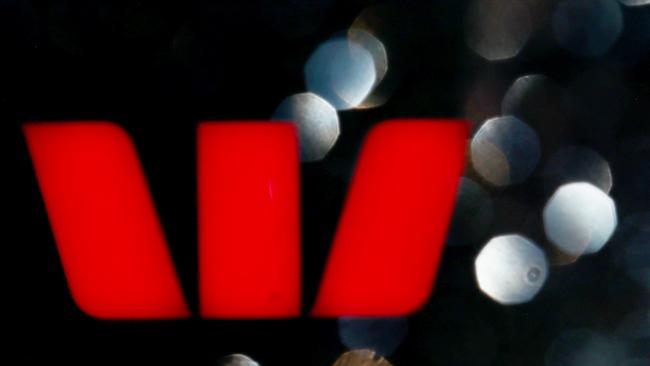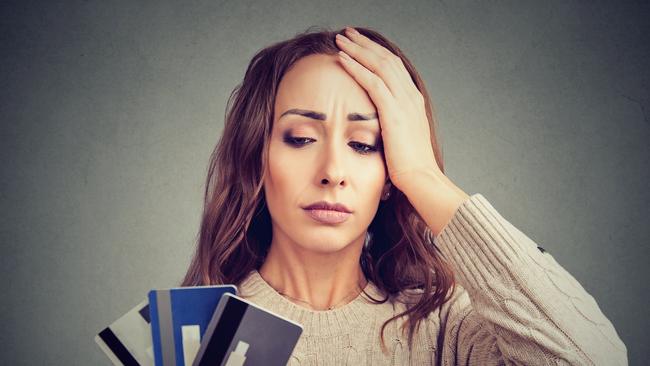Australians have taken on too much debt but there are ways to get out of it
Australians are swimming in debt and spending more than they earn every week. But there are ways to reign in spending.
Business
Don't miss out on the headlines from Business. Followed categories will be added to My News.
Australians are in a serious debt bubble.
We are obsessed with having everything now and then paying for it later.
And for many of us, it means living week to week.
It’s not uncommon to hear people blurt out they are waiting for their pay cheque to lob before they can survive the next week or fortnight ahead.
When I was doing my weekly grocery shop recently I got chatting to the friendly lady in the deli department as she sliced me some ham.
I was rabbiting on about how busy the supermarket was and why on earth was I choosing to shop on Sunday morning.
She went on to tell me she did her grocery shops every Thursday night and I asked her, “why then?”.
“Oh it’s because I get paid on a Thursday, so I need to wait for my pay cheque to arrive,” she said.
“My husband stays home with the kids while I go and get all the groceries.”
So it’s real, people are living week to week.
And of course it’s not the first time I’ve heard this.
There are many of us out there who do not have a cash buffer and are just battling to get by.
Australian Bureau of Statistics data showed in 2015-16 based on the debt to income ratio, around three in ten households (29 per cent) were classified as “over-indebted’.
This means one-third of us are up to our eyeballs in debt.
And there’s a very good chance it’s taking a toll mentally and emotionally.
Some of us are stressed out of our brain about how we are going to make ends meet.
But we must remember not all debt is bad.
For those paying off a home loan, now is the perfect time to slash down your mortgage with interest rates sitting at rock-bottom levels.
There’s mortgage rates out there below the three per cent mark, incredible really.
But recent stats rolled out by Westpac showed even though mortgages have never being cheaper people are struggling.

It found the proportion of Westpac customers running behind on their repayments was at its highest level in more than 20 years.
This is despite the cost of borrowing having never being as cheap.
One in every 110 Westpac customers are at least 90 days behind on their repayments.
As for credit cards — these are one of the nastiest things ever invented and have left many Australians drowning in debt.
Latest Reserve Bank of Australia figures showed in June we owed $50.8 billion on these little plastic suckers and more than $31 billion was accruing interest.
Rewind back to two years and we owed $51.9 billion and more than $31.9 billion was accruing interest.
So not much has changed.
These evil little cards attract interest rates north of 20 per cent in many cases, so if you can’t pay them back in full each month, to put it frankly, you’re stuffed.
You shouldn’t be using these cards. You should go back to the old method of paying with debit not credit.

MORE NEWS
Money movement changing people’s lives
Had a big year? This is what you need to tell the tax office
Hidden sting in working for Deliveroo and Uber
When paying tax is a good thing for Aussie investors
But I understand this is far less fun for those of us who suffer from instant gratification and cannot possibly wait to get the goods.
Enter buy now pay later schemes such as Afterpay, Zippay and Openpay.
A review of the schemes by the Australian Securities and Investment Commission last year found the industry is booming.
The number of transactions made using these schemes where you could buy goods online or instore and pay them off in instalments shot up from 50,000 transactions in April 2016 to 1.9 million transactions in June 2018.
The total balance of this outstanding debt climbed from $476 million in April 2016 to $903 million in June 2018.
The difference between these schemes and credit cards is customers are not charged interest if they fail to meet their required repayments.
However they are slapped with hefty fees if they cannot meet the strict repayment criteria.
So it’s yet another form of credit.
There’s just so many things now where we can get it now and pay it off later.
It’s not teaching people to save, there’s this expectation you can walk away with the goods or get the service and worry about paying for it down the track.
And often this ends in tears.
But whichever way you look at it Australia has among the highest household debt in the world.
And something has got to give.
This money has to be repaid one day.
We can’t live on credit forever.
I was taught growing up if you don’t have the cash for it don’t buy it.
Simple really.
Of course this doesn’t apply to everything such as buying a house, but it certainly applies when making discretionary spends that we could often go without.


